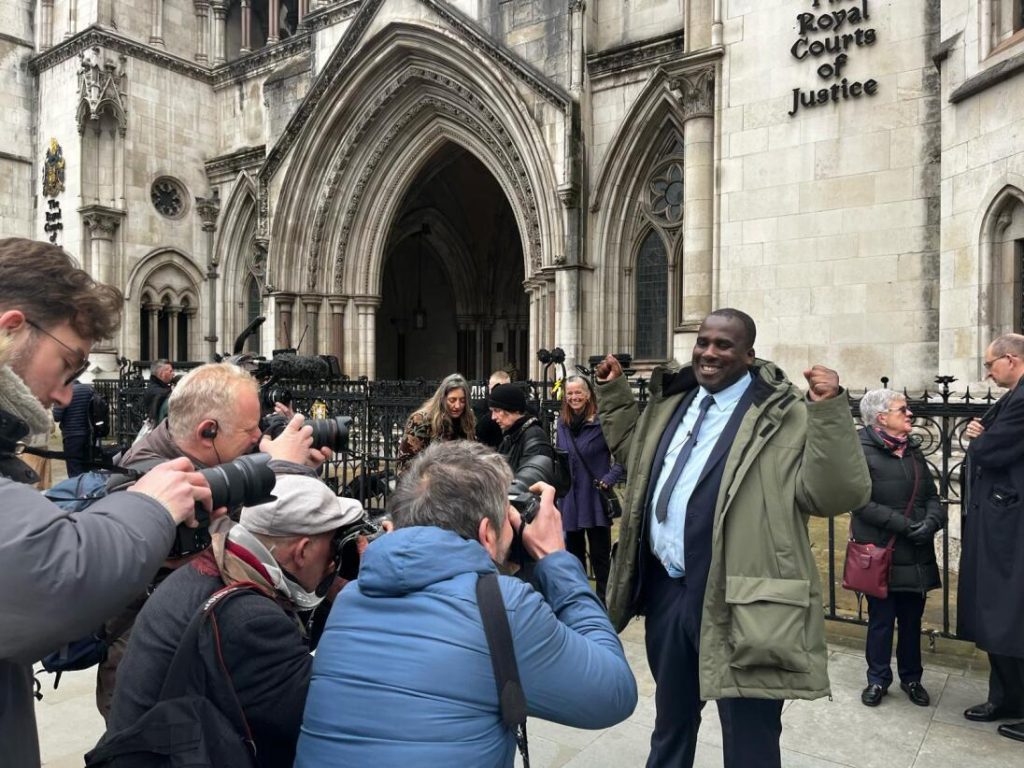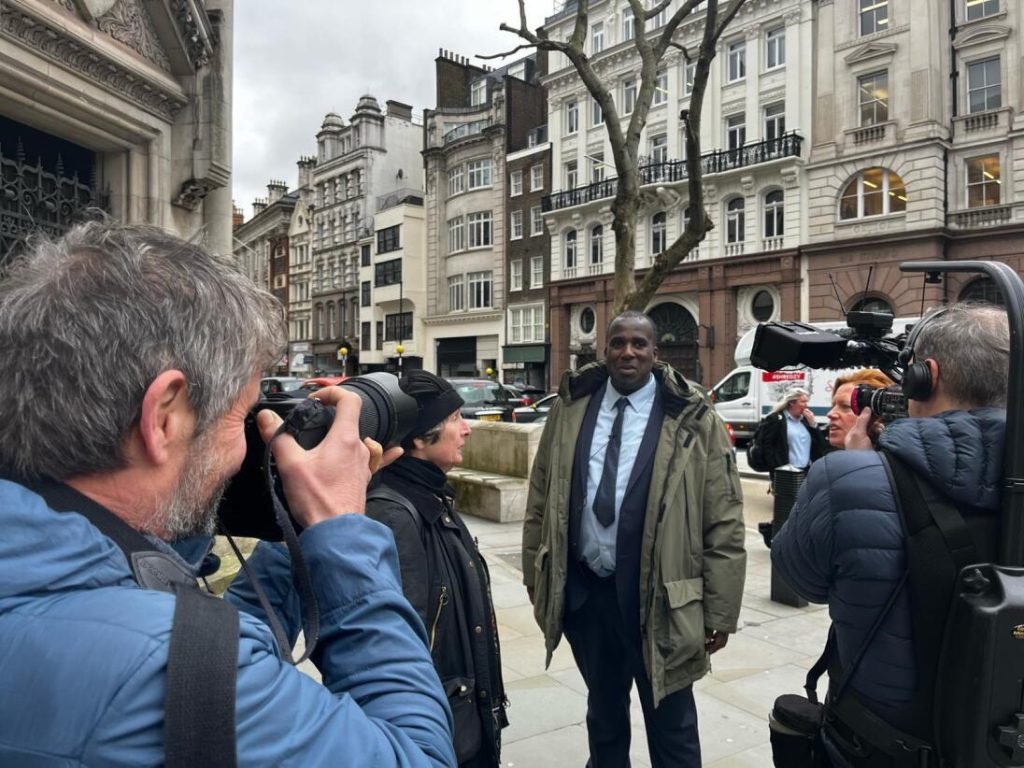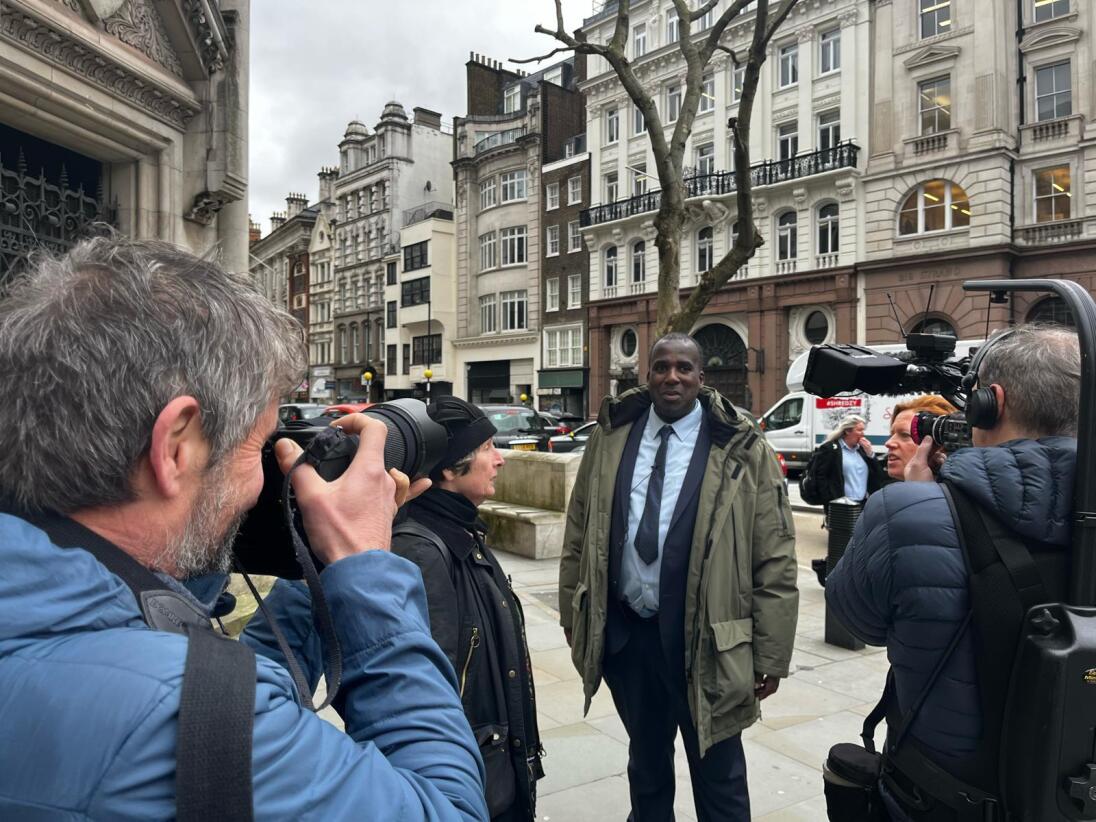A forensic psychologist told the Royal Court of Justice last Thursday that recent scientific research proves there is a ‘high risk’ that a man convicted of murder in 1991 made a false confession. On the second day of Oliver Campbell’s murder conviction appeal, the court heard testimony from two expert witnesses, Gisli Gudjonsson and Alison Beck. Photos: Louise Shorter
The experts gave evidence about the advancements in scientific research on false confessions since the first appeal which took place in 1994.
Gudjonsson, a clinical and forensic psychologist, has been involved in the case since Campbell’s trial and conviction in 1991 when he expressed concerns around police questioning both in a report and in a letter to Campbell’s lawyers – as reported by Emily Dugan in the Guardian.
However, at the time he did not conclude that Campbell was especially ‘suggestible’ – in other words, that he was likely to have made a false confession.
Gudjonsson has since spent more than four decades researching how psychological factors affect people under interrogation and now says that it is probable that Campbell made a false confession due to police pressure. He also accepts that he had not fully understood the extent of Oliver’s vulnerabilities when he made his previous reports.
 Alison Beck, another clinical psychologist, also told the court that the science had developed since the previous appeal, saying there is now a better understanding of how mental vulnerabilities and race affect people’s response to police questioning. You can read more about Campbell’s police interviews on the Justice Gap here.
Alison Beck, another clinical psychologist, also told the court that the science had developed since the previous appeal, saying there is now a better understanding of how mental vulnerabilities and race affect people’s response to police questioning. You can read more about Campbell’s police interviews on the Justice Gap here.
In his 1991 trial, no experts were called to give evidence as to why Campbell might have falsely confessed. Speaking to The Justice Gap, Beck said: ‘The Jury needed to know (but were not told) that they should not immediately interpret his inconsistent information as evidence of lying, or his admissions of guilt as evidence of him telling the truth.’
During the appeal in 1994, psychologist Dr Tunstall testified that Campbell was vulnerable to police pressure based on the research up to this year. The court deemed Tunstall’s opinion as ‘tentative in the extreme’, and the appeal failed.
Now, the prospect of an appeal rests on demonstrating the scientific developments since 1994 and proving that they apply to Campbell.
Sandy Martin, ex-MP for Campbell’s hometown Ipswich, has been vocal about the case.
Regarding the developments in scientific evidence, he said: ‘Obviously this matters very much for Oliver, but it also matters for British Justice. One of the leading psychologists in this case has accepted that he did not fully understand Oliver’s vulnerabilities at the time of the original trial. We all need to be able to flag up when things are wrong – whether doctors, police, lawyers or politicians – otherwise we will never be able to right previous wrongs or learn how to avoid them in future.’
The case was adjourned at around 3:30pm as the court said Campbell’s lawyers needed to answer further points of law. They have been given two weeks to provide this written evidence.
Michael Birnbaum KC and Glynn Maddocks KC have worked on this case for nearly 25 years. Convinced of Campbell’s innocence, they hope they will have proved this in the eyes of the law and, at long last, bring justice after 32 years.








